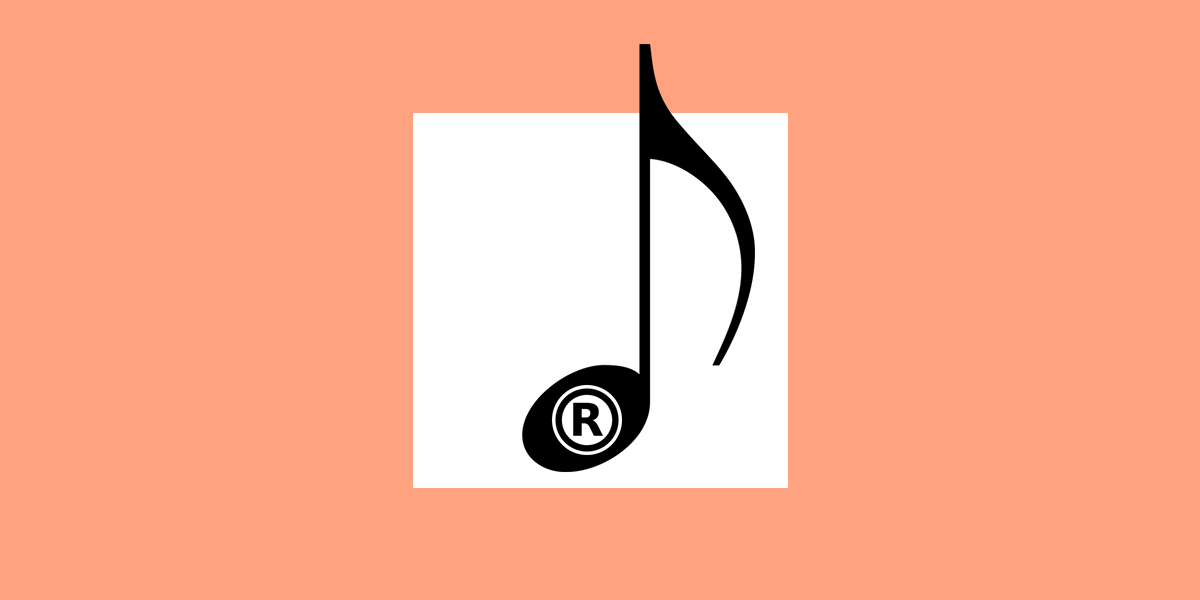
Trademark Woes: When two bands have the same name!!!!!
[This article was written by Katelyn Kindberg. It should not be taken as legal advice. For help with your trademark concerns, please consult with your lawyer.]
Here’s an actual band-name scenario that a reader of this blog asked us about:
What if there’s a slightly older, but even more obscure band called “Madcrowd,” and your band is called “Mad Crowd”, (with a space) and you are more popular? Should “Mad Crowd” pursue a trademark or just ask “Madcrowd” to not try to screw “Mad Crowd” (newer, more popular one) over?
Great question! Similar names are inevitable with millions of artists out there, and new acts cropping up every day. Your scenario presents a couple questions:
- Can “Mad Crowd” and “Madcrowd” coexist peacefully?
- When do similar names become a trademark problem?
The answer goes beyond determining which band is older or more popular. It all depends on the likelihood of confusion.
What is a trademark?
A trademark is an identifier, or “mark” that helps consumers distinguish one source from another – like how the word “Nike” lets you know your sneakers are from Nike and not from Adidas.
What is “likelihood of confusion?”
Trademark infringement happens when the use of a mark is likely to confuse consumers about the source of goods or services. If there is a likelihood of confusion between two marks, the mark that was either used first in commerce or registered first with the U.S. Patent and Trademark Office (USPTO) will prevail, and the other mark will be infringing.
It may be obvious that if I opened a coffee shop in Seattle called “Starbucks” I would be infringing on the Starbucks® trademark because my use of the identical mark “Starbucks” would be likely to confuse coffee drinkers about whether or not the source of their coffee was the famed Seattle-based coffee chain Starbucks® — who was the first to register that mark.
What creates a likelihood of confusion when considering trademarks?
What is less obvious is that the likelihood of confusion extends beyond using identical marks, like “Starbucks” and Starbucks®.
Likelihood of confusion exists when:
- The marks are similar (based on sound, appearance, or meaning), and
- The goods or services of the parties are related such that consumers would mistakenly believe they come from the same source.
For example:
- Not all uses of identical marks are infringing, because not all uses of identical marks create a likelihood of confusion. If I opened a museum for exceptional deer taxidermy called “Starbucks,” I would likely not be infringing on the Starbucks® trademark, even though my use of the mark is identical to Starbucks®. While the marks are similar, the goods we serve – museum experiences and coffee – are not related such that coffee drinkers would mistakenly believe that my museum experiences and Starbucks® coffee come from the same source.
- If I returned to open a coffee shop, this time called “Star Bucks,” I would again be infringing on the Starbucks® trademark because my mark is similar to Starbucks® (based on sound) and the goods we serve (coffee) are related such that coffee drinkers would mistakenly believe that my and Starbucks® coffee come from the same source.
- The same would be true if I named my coffee shop “StArBuCkS,” which is similar to Starbucks® based on appearance. Even the name “EstrellaBucks” may infringe on the Starbucks® trademark, because when the Spanish word “Estrella” is translated into English, it means “Star,” so the marks are similar based on meaning.
So, the likelihood of confusion depends on the similarity of the marks and the relatedness of the goods. The more likely consumers are to be confused between the two sources, the more likely one mark is infringing on the other.
What about trademarks for your own legal name?
Even your own legal name can create a likelihood of confusion with an existing trademark. For example, there are dozens of musicians out there who are legally named “Bob Dylan” who can’t perform as “Bob Dylan” because the Bob Dylan trademark is owned by a legendary performer who is legally named Robert Zimmerman. If any of these legally-named Bobs were to perform under their own name, they would be infringing on the Bob Dylan trademark because their mark and services are identical in a way that would cause consumer confusion. Luckily, unless your name is Bob Dylan, you can trademark your legal name so that you can perform using your name without worry.
And trademark for similar band names…
So, yes, similar band names happen, and they can cause sticky trademark issues. Therefore, it is helpful to be equipped with proper trademark registration to ensure your trademark ownership. While it is helpful to understand how the likelihood of confusion could affect your use of a mark, trademark law is more complicated and nuanced than this answer covers. You should talk to a lawyer to see how trademark law applies to your unique situation and what solutions will work best for you.
Great news: all indie musicians have access to legal support! thanks to superhero Volunteer Lawyers for the Arts organizations. More info here.
More helpful DIY Musician articles:
- Protecting your music through copyright, trademark, and more
- How to trademark your band or artist name
Help from the USPTO:
- Musicians and Artists Profile:
https://www.uspto.gov/learning-and-resources/ip-policy/musicians-and-artists-profile - Rockin’ the Trademark:
https://www.uspto.gov/trademark/laws-regulations/rockin-trademark
*Note: This information is primarily relevant for musicians operating in the U.S. Talk with your lawyer to find out how trademark ownership works internationally.